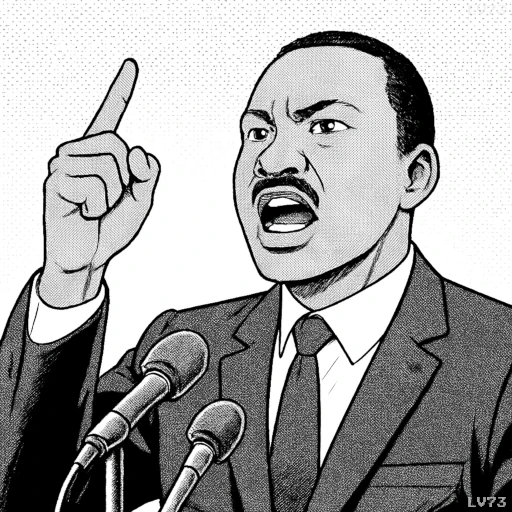“The Negro needs the white man to free him from his fears. The white man needs the Negro to free him from his guilt.”

- January 15, 1929 – April 4, 1968
- African American
- Pastor and civil rights leader
table of contents
Quote
“The Negro needs the white man to free him from his fears. The white man needs the Negro to free him from his guilt.”
Explanation
In this quote, King addresses the mutual liberation required to overcome the deep-rooted issues of racism and division. He suggests that freedom from racial injustice is a shared process in which both Black and white Americans play essential roles. King argues that Black Americans need the partnership of white Americans to dismantle the oppressive systems that have instilled fear and insecurity, while white Americans need to confront their guilt and responsibility for these injustices. By working together, both groups can help free one another, fostering healing and unity.
King’s perspective reflects his belief in interdependence and reconciliation. He understood that systemic racism had psychological and moral impacts on everyone, not only those directly oppressed by it. Black Americans suffered the effects of discrimination, while white Americans bore the weight of complicity in that system. King saw that true progress required acknowledgment, empathy, and cooperative action. Only by understanding and supporting each other could both groups move beyond fear and guilt toward a society of equality and trust.
Today, King’s insight remains relevant in conversations about racial justice and allyship. His words remind us that achieving equality requires the active engagement of all, with everyone taking responsibility for fostering empathy, accountability, and trust. For allies, this means not only understanding and confronting historical and present injustices but also working to dismantle them alongside those affected. King’s quote invites us to see liberation as a collective journey, one that can only be completed when all parties engage openly, honestly, and compassionately. Through mutual support and shared commitment, we can build a future where justice and equality are realities, not ideals.
Would you like to share your impressions or related stories about this quote in the comments section?




